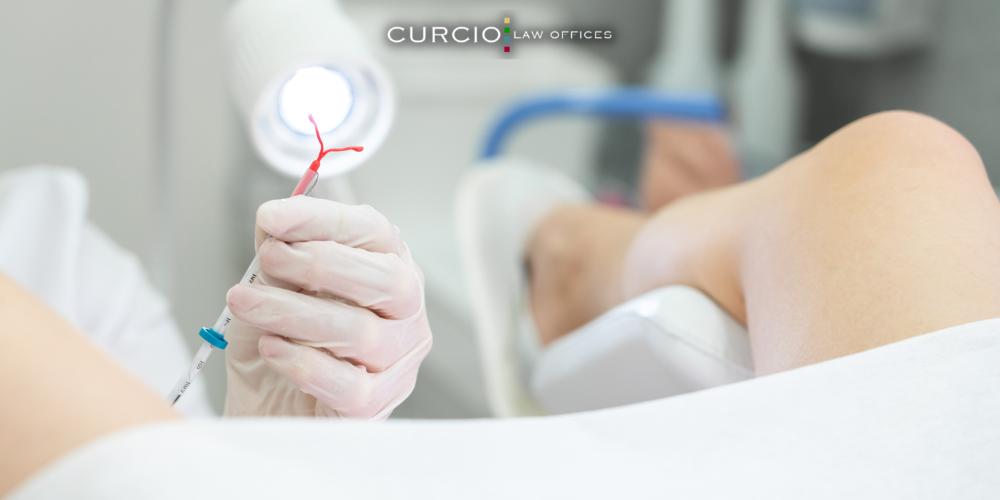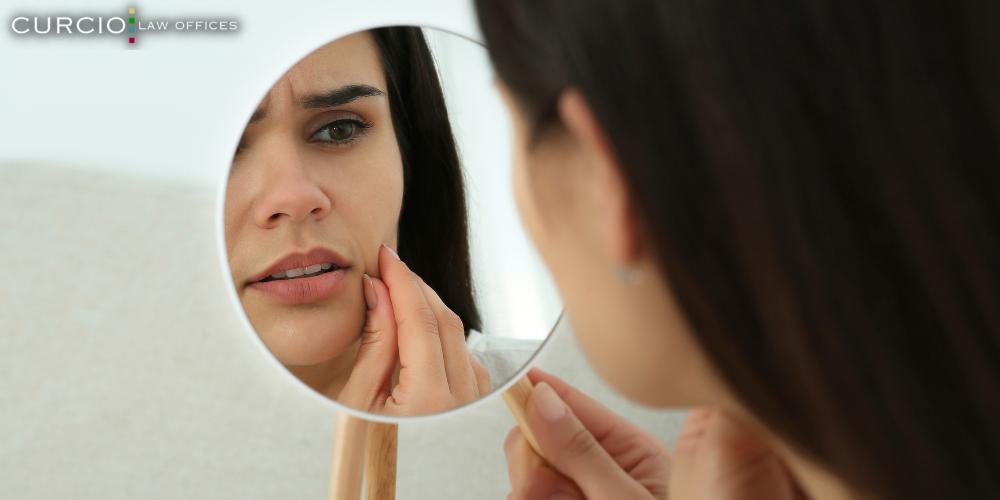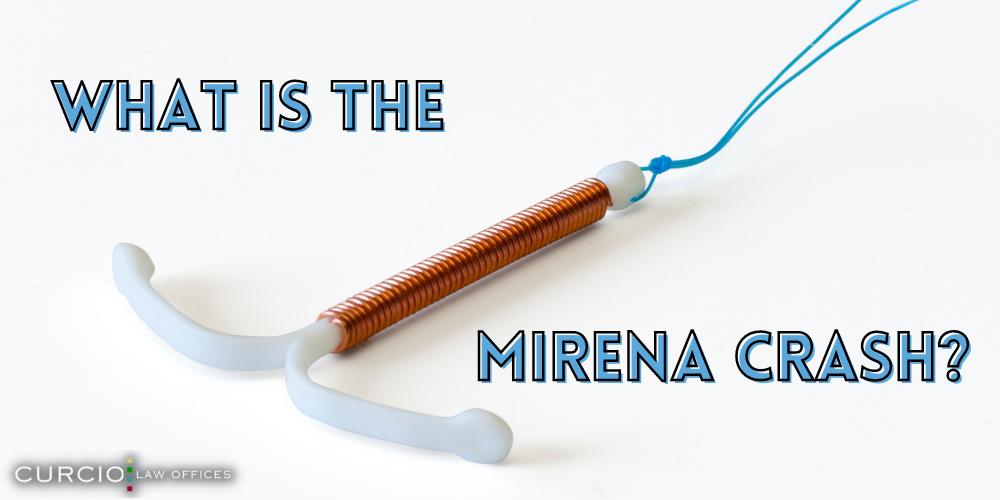It may not be acknowledged by Bayer Pharmaceuticals or other medical literature, but the “Mirena crash” is real, and it has been affecting countless women for years. The Mirena crash is a set of emotional and physical symptoms that are triggered immediately after intrauterine device removal. The symptoms are thought to be caused by the significant hormone imbalance that occurs once the body no longer receives progestin, the hormone secreted by the Mirena IUD. Symptoms can vary in severity and typically include sudden mood swings, depression, anxiety, thoughts of self-harm or suicide, severe headaches, hair loss, changes in menstruation, and so much more. These symptoms can last anywhere from a few days to several months.
The good news is that women who suffer from severe side effects and complications associated with intrauterine devices can take legal action. Below, our Chicago product liability lawyers break down everything you need to know about the Mirena crash, and whether you can recover compensation through a civil lawsuit.
If you have suffered personal injury or financial loss from any defective medical device, it’s important to speak with an experienced legal professional. Chicago personal injury attorneys at Curcio & Casciato has decades of combined experience in defending and representing victims of defective devices. We have what it takes to take on your case and recover a fair settlement on your behalf. Call 312-321-1111 to schedule a free consultation at our law firm today.
What is the Mirena IUD?
The Mirena intrauterine device (IUD) is a common form of birth control that is 99% effective at preventing pregnancy for up to 8 years according to its manufacturer. Not only can the Mirena device prevent pregnancy, but it can also be an effective treatment for heavy menstrual bleeding (HMB) for up to 5 years.
The Mirena device is considered a hormonal IUD. Hormonal IUDs work by secreting hormones once placed inside a woman’s uterus. The Mirena IUD secretes the hormone progestin (levonorgestrel), which is the synthetic form of the naturally occurring hormone progesterone. Progestin thickens cervical mucus (thereby preventing sperm from fertilizing an egg), thins the lining of the uterus, and suppresses ovulation.
When to Remove the Mirena IUD
You should get your Mirena IUD removed if you plan to become pregnant or if you have had the device for 5 to 8 years. Doctors also encourage Mirena IUD removal for women suffering from major side effects or complications, such as:
- Frequent migraines
- Heavy bleeding and anemia
- Frequent pelvic pain
- Pelvic inflammatory disease (PID)
- Perforation of the uterus or other internal organs
- Painful intercourse
- Ectopic pregnancy, which occurs when a fertilized egg implants somewhere other than the uterus (usually in one of the fallopian tubes)
- IUD migration, which means the IUD moves to other parts of the woman’s body
- Ovarian cysts
Intrauterine devices have strings that hang down outside of the uterus. These strings can be felt at the top of the vaginal canal, and usually indicate that the IUD is properly in place. You should not attempt to remove your IUD by yourself by pulling on the strings. Doing so can result in extreme pain and possible injury. You should only allow a healthcare provider to remove your IUD.

What is the Mirena Crash?
The “Mirena crash” describes a variety of emotional and physical symptoms that occur after Mirena IUD removal. It’s not a definite diagnosis in medical literature, rather it’s a health phenomenon described by countless women who have their Mirena IUD removed.
These symptoms are caused by the significant hormonal imbalance that occurs post-Mirena removal, because the body no longer has a foreign device that’s secreting the hormone progestin. Now, the body must create its own progesterone in order to maintain a hormonal balance, which can take a few days to a few months following Mirena removal.
Mirena Crash Symptoms
Symptoms of the Mirena crash vary in severity, and can include:
- Sudden, drastic mood swings
- Increased anxiety or depression
- Weight gain
- Hair loss
- Fatigue
- Severe headaches that can radiate to the neck and shoulders
- Nausea
- Appetite changes
- Acne
- Low sex drive
- Breast tenderness and/or swelling
- Infertility
- Changes in menstrual cycle, such as irregular periods or heavy bleeding
- Painful periods

How to Cope With Mirena Crash Symptoms
Symptoms from the Mirena crash can be absolutely debilitating for many women, and can affect their ability to work and function on a daily basis. The good news is that for many women, symptoms from the Mirena crash do end once the hormones regain balance. Still, it’s important to find healthy coping mechanisms during this emotionally and physically tough time.
Medical professionals typically recommend the following coping strategies:
- If you’re suffering from headaches, painful periods, or body aches, take over the counter pain medications and use heat or ice therapy.
- If your mental health is impacting your ability to work, function, and take care of yourself, consider speaking with a counselor and close friends.
- When you’re in pain and generally feeling miserable, the last thing you want to do is exercise. But gentle exercise – like walking, stretching, and yoga – can improve mental health symptoms such as anxiety and depression.
- Practice breathing exercises and/or meditation for a few minutes every day.
- Focus on giving your body what it needs: nutritious foods, lots of water, gentle exercise, and at least 8 hours of sleep. It’s very hard for the body to fix a hormonal imbalance without these basic necessities.
- Decrease (or stop) caffeine intake, alcohol intake, and smoking or vaping, all of which can make Mirena crash symptoms worse.
- Reduce daily sugar intake from sodas, energy drinks, cookies, cereals, cakes, etc. Excessive sugar intake can also make Mirena crash symptoms worse.
If Mirena crash symptoms continue longer than a few weeks or months, schedule an appointment with your doctor and request lab work to check your current hormone levels. You may need hormone replacement therapy to improve or get rid of your symptoms.
When You Should Go to the ER
Many women can cope with Mirena crash symptoms at home. However, some symptoms can become dangerous and life-threatening, and even require a trip to the ER.
You should seek emergency medical treatment have the following symptoms:
- Severe pain in the abdomen or uterus.
- Severe headache pain that won’t respond to at-home treatments.
- Thoughts of self-harm and/or suicide.
- Heavy bleeding.
- High fever.

Can You Sue for the Mirena Crash?
Yes, if you have suffered any health complications, injuries, or financial loss from the Mirena IUD, you may have grounds to file a product liability lawsuit.
The manufacturer of the Mirena IUD, Bayer Pharmaceuticals, has been sued before for a variety of debilitating IUD injuries and side effects such as IUD migration, organ perforation, ectopic pregnancy, and increased skull pressure. The plaintiffs in these lawsuits claimed that Bayer used deceptive advertising practices to hide the serious side effects and complications caused by the IUD device. Additionally, plaintiffs claimed that Bayer knowingly sold a dangerous, defective medical device.
All medical device companies owe their customers a duty of care to create safe products and effectively warn consumers of any serious side effects or complications. Bayer Pharmaceuticals breached this duty of care, causing millions of women to endure serious mental and physical symptoms as well as financial loss from treating these symptoms. Therefore, these women have grounds to file claims for product liability violations in civil court.
In 2017, Bayer settled a multidistrict litigation including 4,800 plaintiffs with $12.2 million. However, some lawsuits are still ongoing. If you’re interested in filing a product liability claim for your Mirena crash symptoms, be sure to speak with a Chicago IUD attorney at Curcio & Casciato.
Mirena IUD Lawsuit Damages
Chicago product liability lawyers at Curcio & Casciato can help Mirena IUD victims seek compensation for the following damages:
- Past and future medical bills
- Past and future mental health counseling costs
- Lost wages
- Permanent injury and/or infertility
- Emotional distress
- Physical pain and suffering
- Loss of enjoyment of life
- Loss of consortium

Call Chicago IUD Lawyers at Curcio & Casciato Today
If you have suffered severe personal injury and/or financial loss from the Mirena IUD, you may have grounds to file a product liability lawsuit and recover compensation. Chicago IUD lawyers at Curcio & Casciato have been representing and defending victims of all sorts of defective medical devices, such as IUDs, since 1957. We have the skill and experience necessary to recover a fair settlement on your behalf. Call 312-321-1111 to schedule a free consultation at Curcio & Casciato today.



